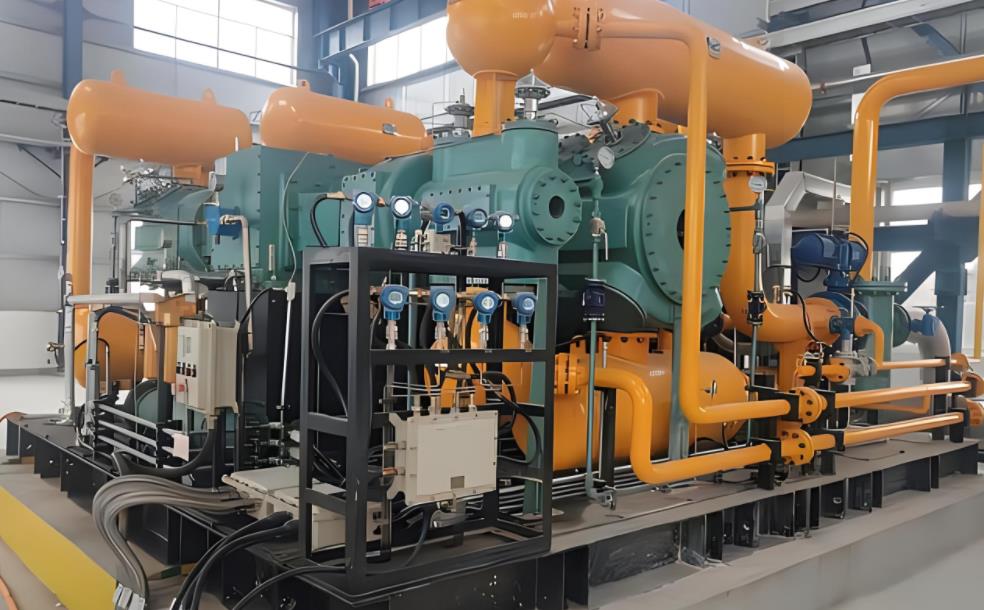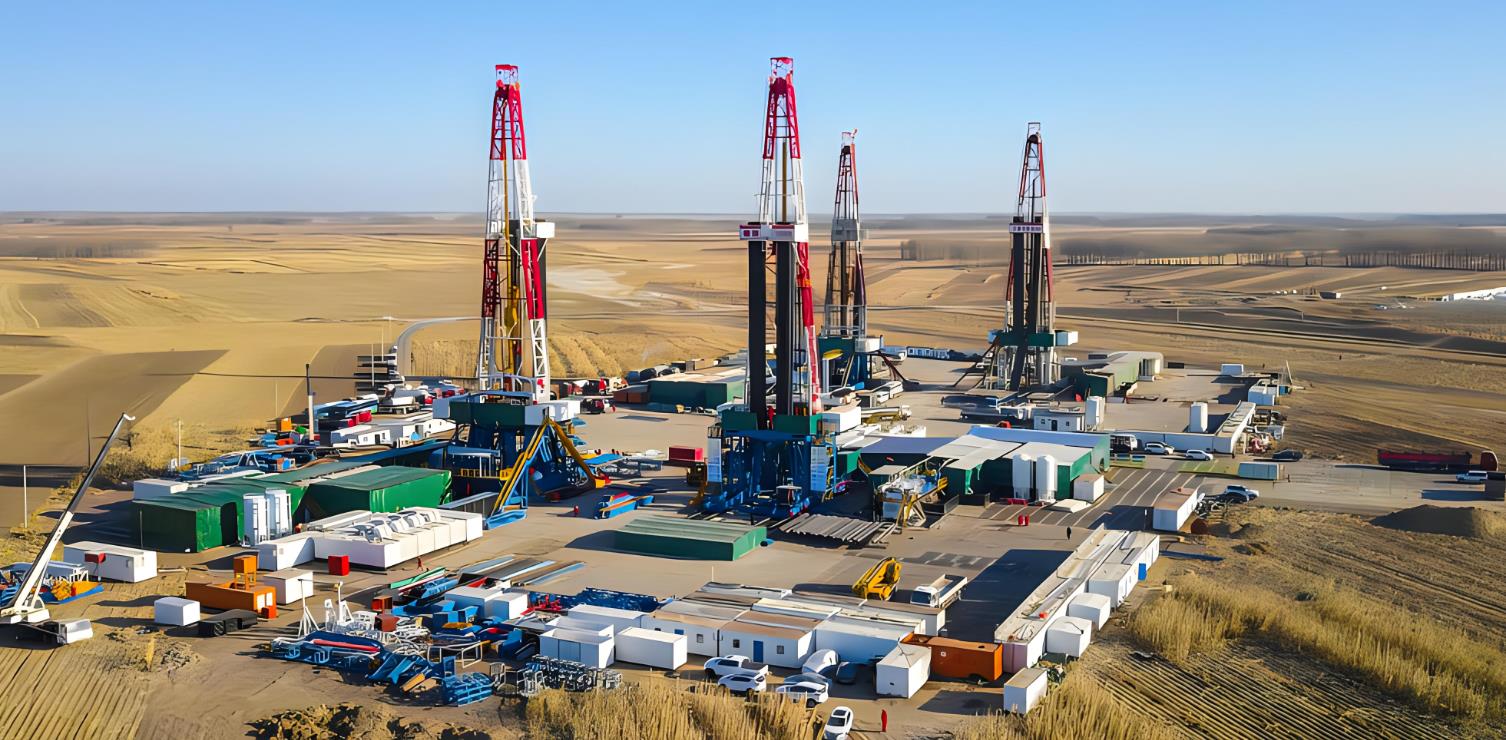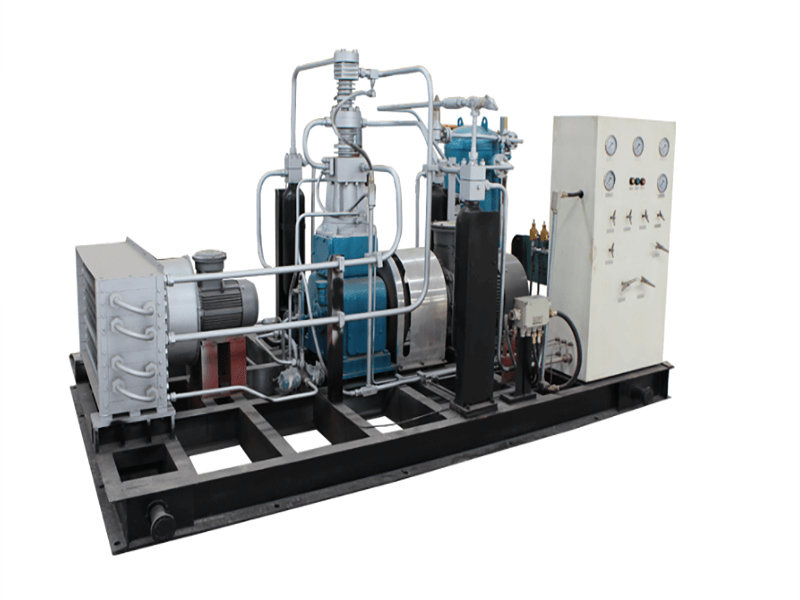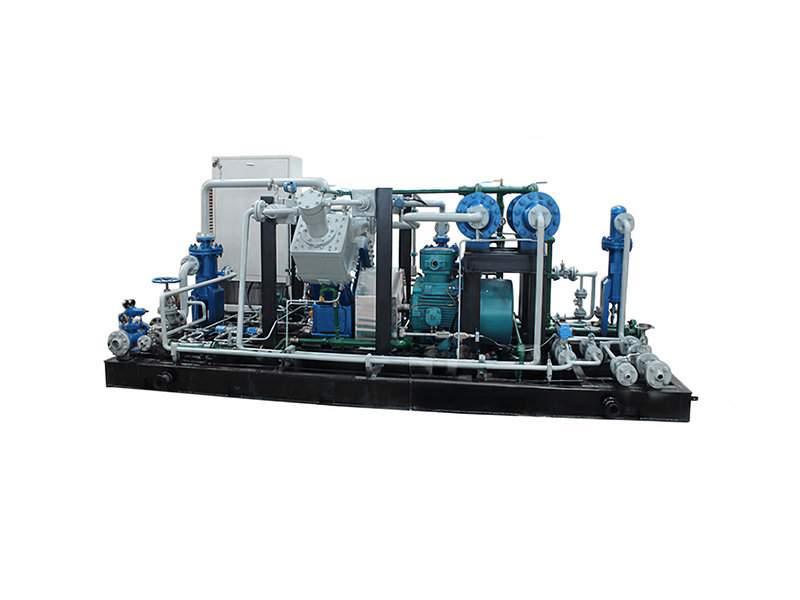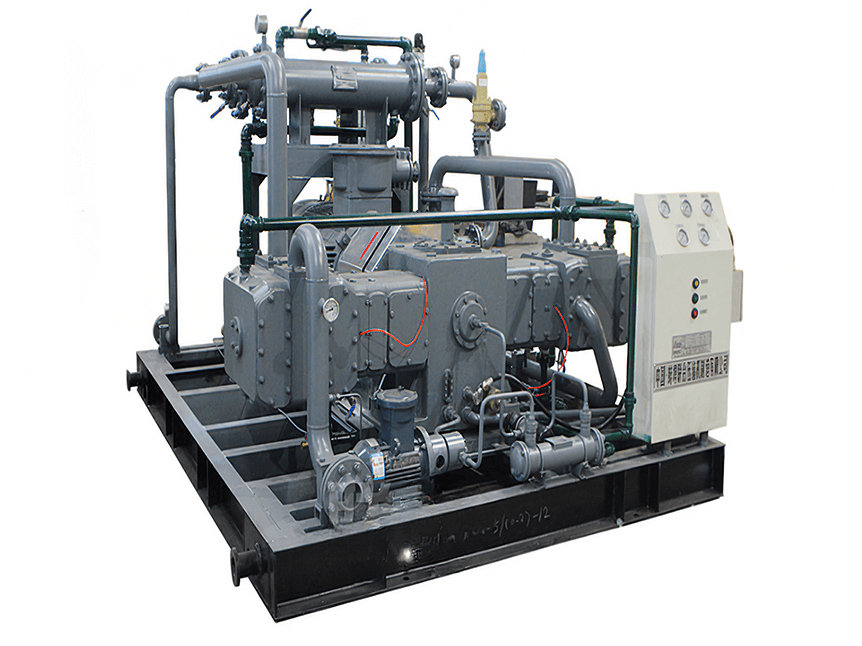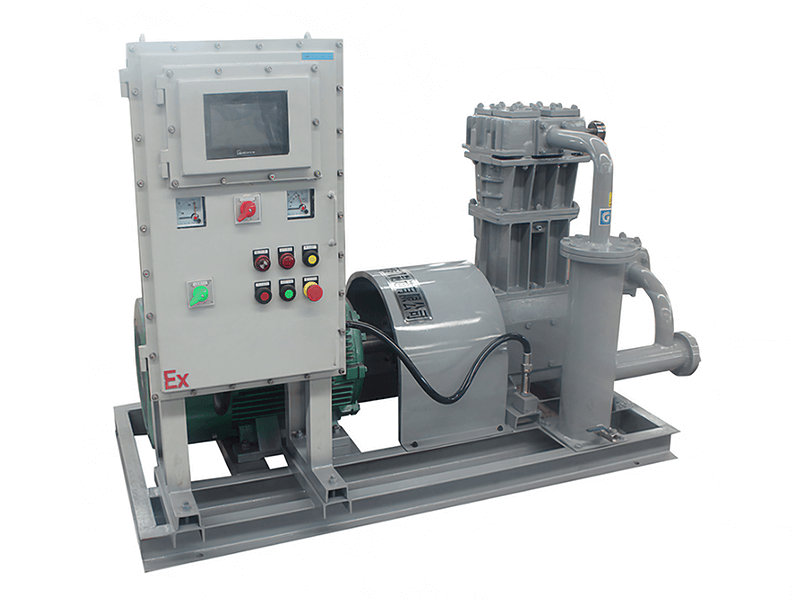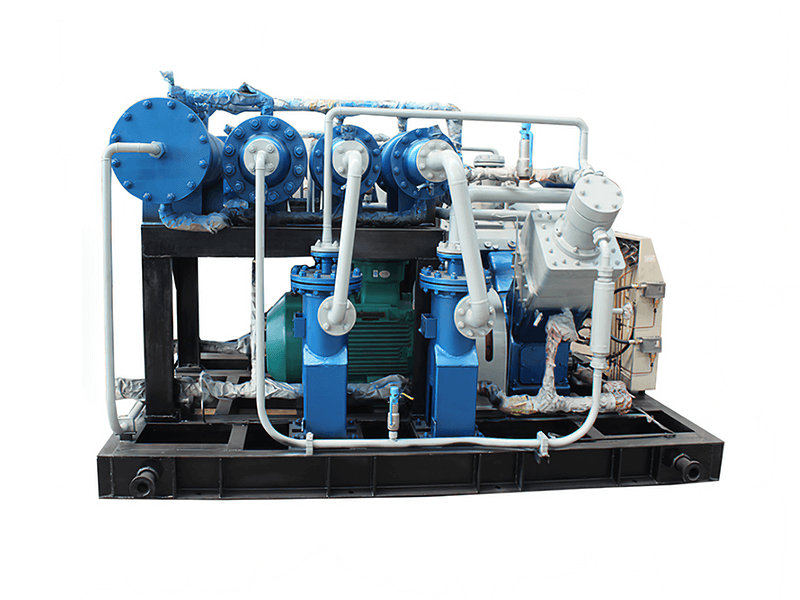A natural gas booster compressor, also known as a gas booster or gas compression booster, is a type of compressor specifically designed to increase the pressure of natural gas. It is used in various applications where the natural gas pressure needs to be elevated for transportation, distribution, or specific process requirements.
Key features and applications of natural gas booster compressors
1. Pressure Increase: The primary function of a natural gas booster compressor is to raise the pressure of the incoming gas to a higher level. This is achieved by compressing the gas using a positive displacement mechanism, such as reciprocating or rotary compressors.
2. Pipeline Transmission: Natural gas booster compressors are commonly used in pipeline transmission systems to maintain the required pressure levels along the gas pipeline. As natural gas travels long distances through pipelines, friction and other factors can cause pressure drops. Boosting the pressure periodically using compressor stations ensures the gas reaches its destination at the desired pressure, enabling efficient and continuous gas flow.
3. Gas Injection: In some applications, natural gas needs to be injected into a reservoir or storage facility at higher pressures. Booster compressors are employed to increase the gas pressure to meet the injection requirements. This is commonly seen in natural gas storage operations or enhanced oil recovery (EOR) techniques where gas is used to displace oil from underground reservoirs.
4. Wellhead Compression: Wellhead gas, as mentioned earlier, refers to the raw natural gas extracted directly from a well. In some cases, the wellhead gas pressure may not be sufficient for processing or transportation. Natural gas booster compressors can be installed at the wellhead to increase the pressure, allowing for efficient transportation of the gas to processing plants or distribution networks.
5. Industrial Processes: Natural gas is a versatile fuel and is used in various industrial processes. In some cases, the process requirements demand higher gas pressures than what is available from the supply source. Booster compressors are installed to raise the gas pressure to meet the specific needs of the industrial process, ensuring optimal performance and efficiency.
6. CNG (Compressed Natural Gas) Stations: Natural gas is compressed and stored as CNG for use in vehicles and other applications. Natural gas booster compressors are employed at CNG stations to increase the pressure of the gas for refueling purposes. This allows for faster and more efficient filling of CNG tanks in vehicles.
7. Gas Distribution Networks: Natural gas booster compressors play a crucial role in gas distribution networks, particularly in areas with high demand or where the natural gas supply pressure is insufficient. By boosting the pressure, these compressors ensure that the gas reaches residential, commercial, and industrial consumers at the required pressure levels.
8. Remote Locations: In remote or off-grid locations where natural gas is available but at lower pressures, booster compressors are used to increase the pressure for local use. This is often the case in remote industrial operations, mining sites, or power generation facilities that rely on natural gas for their energy needs.
9. Pressure Regulation: Natural gas booster compressors can be utilized to regulate and control gas pressure in specific applications. By adjusting the compressor's operation and output, the desired pressure levels can be achieved to meet the requirements of different processes or equipment.
10. Compressor Types: Natural gas booster compressors can be designed as reciprocating compressors or rotary screw compressors, depending on the specific application and operating conditions. Reciprocating compressors use pistons to compress the gas, while rotary screw compressors employ male and female rotors to achieve compression. The choice of compressor type depends on factors such as gas flow rate, pressure ratio, and efficiency requirements.
11. Efficiency Considerations: Natural gas booster compressors are designed to operate efficiently and minimize energy consumption. They often incorporate features such as variable speed drives, advanced control systems, and optimized designs to enhance performance and reduce energy losses.
12. Safety Measures: Safety is of paramount importance when working with natural gas booster compressors. Proper safety protocols, including gas detection systems, pressure relief devices, and appropriate ventilation, should be in place to prevent and mitigate potential hazards associated with natural gas compression.
It's worth noting that natural gas booster compressors are typically installed as part of a larger gas infrastructure system, including pipelines, storage facilities, and distribution networks. They are carefully sized, selected, and positioned to ensure the efficient and reliable transportation and utilization of natural gas while meeting the specific requirements of the application at hand.
Price of a natural gas booster compressor
The price of a natural gas booster compressor can vary significantly depending on several factors, including the compressor's capacity, design, features, brand, and market conditions. Additionally, installation and maintenance costs should also be considered when estimating the overall investment. It is important to contact compressor manufacturers or suppliers directly for accurate and up-to-date pricing information.
Here are a few examples of natural gas booster compressors along with their estimated price ranges. Please note that these prices are indicative and can vary based on specific configurations and market conditions:
1. Small-Scale Reciprocating Compressor: A small-scale reciprocating natural gas booster compressor with a capacity of around 100-500 horsepower (HP) can range in price from $20,000 to $50,000.
2. Medium-Scale Rotary Screw Compressor: A medium-scale rotary screw natural gas booster compressor with a capacity of 500-1,000 HP may have a price range of $50,000 to $150,000.
3. Large-Scale Reciprocating Compressor: A large-scale reciprocating natural gas booster compressor with a capacity of 1,000-5,000 HP can range in price from $150,000 to $500,000 or more.
4. Customized or High-Capacity Compressors: For customized or high-capacity natural gas booster compressors exceeding 5,000 HP, the prices can vary significantly and may reach several million dollars.
It is important to note that these are approximate price ranges, and the actual cost can vary based on factors such as compressor specifications, additional features, installation requirements, and any specific customization needed for the application. It is advisable to consult with compressor manufacturers or suppliers to obtain accurate and detailed pricing information based on specific project requirements.
